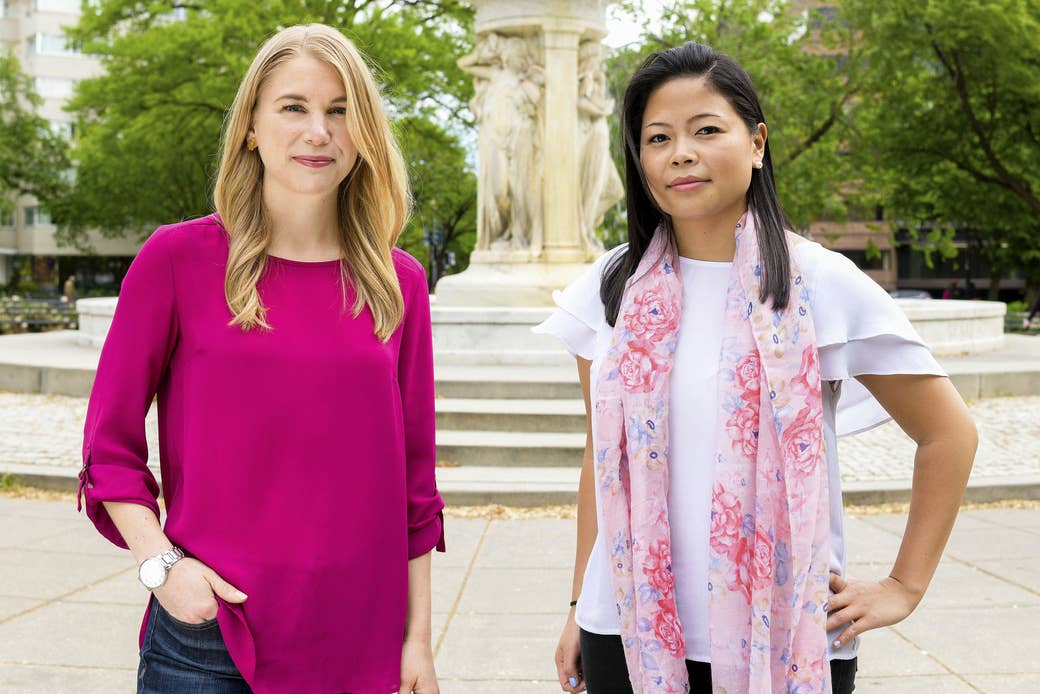
WASHINGTON — About a month and a half ago, a woman who had just gone through the process of reporting harassment at her job in Washington approached Ally Coll.
Coll, the president and cofounder of the Purple Campaign, a group aimed at ending workplace sexual harassment, has been outspoken on harassment issues, and the woman was looking for people in situations similar to hers to connect with. Maybe she could find a way to help others. Could Coll point her to some sort of group to network with?
“Her question made me realize the answer was no,” Coll said.
Washington and the politics that drive it, in particular, are ripe for harassment and abuse of power. From Capitol Hill to campaigns to think tanks to journalism, dozens of women have come forward and taken down powerful figures in the nation’s capital as part of the #MeToo movement. But the nature of harassment often leaves victims feeling isolated. While many of these women have solid support groups of friends, family, and coworkers, they’ve struggled to find others who have been there, who get it.
Coll referred the woman to Anna Kain, a former Hill staffer whom Coll met last year at an organization meeting for a group dedicated specifically to pushing back on sexual harassment on Capitol Hill. Now Coll, Kain, and the third woman — who hasn’t come forward publicly with her story and declined to be identified — are organizing their own meetup for victims of sexual harassment in Washington who have faced similar situations.
The idea, Coll and Kain said, is to provide victims a safe space to talk about their experiences with people who understand what it’s like to have gone through something similar.
“I think the #MeToo movement is bringing up a range of experiences for people,” Coll said. “We realized … there was a huge need for a space and that there were a lot of people looking to connect with others to share these experiences and looking for support and resources and guidance on navigating them and that there wasn’t an existing structure or place or environment for them to meet with other people and to connect with others.”
“You can have the best support system in the world, but it’s so different to talk to someone who has actually been there,” Kain said.
Kain has been outspoken on harassment issues since she decided to tell her own story in early 2018. Kain alleged Tony Baker, a senior staffer whom she worked with in former Connecticut Rep. Elizabeth Esty’s office, had been abusive toward her throughout 2014, including punching her, when they were both working in the same office. The two had dated, and in 2016 after Kain had left the office, Baker left Kain a voicemail threatening to kill her. Esty eventually decided not to seek reelection over allegations that she mishandled the issue; Baker was allowed to stay in his job for three months after Esty learned of Kain’s allegations and gave him a positive job recommendation.
Now Kain talks about how big of a difference it would have made if she’d been able to connect with someone who had gone through something similar when she was going through all of this. “It could have recognized and validated the feelings I was feeling. I think at the very least I wouldn’t have felt so alone in it.”
Hey! Please join @campaign_purple & me next Thursday, May 2nd, and/or pass along the below info for anyone in DC who is interested. @TheVivaCenter #MeToo
The meetup — which will be held on Thursday, May 2, at the Viva Center in Northwest Washington — aims to provide victims a path to connect with one another. They can come and just listen, or speak to the group, or chat one-on-one — whatever they feel most comfortable with. The women organizing the event emphasize they’re not seeking to provide or replace professional help.
As far as Coll and Kain know, a casual gathering like this does not exist in Washington.
It’s hard to imagine a group like this coming together before the #MeToo movement happened, they said.
“I think the #MeToo movement has been so impactful and so powerful because it has forced … these experiences into the narrative in this unavoidable way that ... I think has made it almost impossible for people to successfully refute the knowledge that these experiences happen and these stories exist,” Kain said.
But in Washington, in particular, it can be difficult for women to come forward.
“The work environments that exist in DC tend to be very mission-driven,” Coll said. “A lot of people come to a workplace because they believe in a cause … I think those work environments tend to be really difficult ones in which to report in this context because there’s a feeling that the mission is greater than the individual, and for a lot of people, they don’t want to undermine the work that they’re doing.”
Often, Coll said, victims want to take action following their experience, either by empowering others, seeking policy change, or looking for ways to prevent it from happening to anyone else. This meetup, she said, could provide an avenue that leads to that sort of action.
“People who have had these really negative experiences … they want to turn them into something positive.” ●

